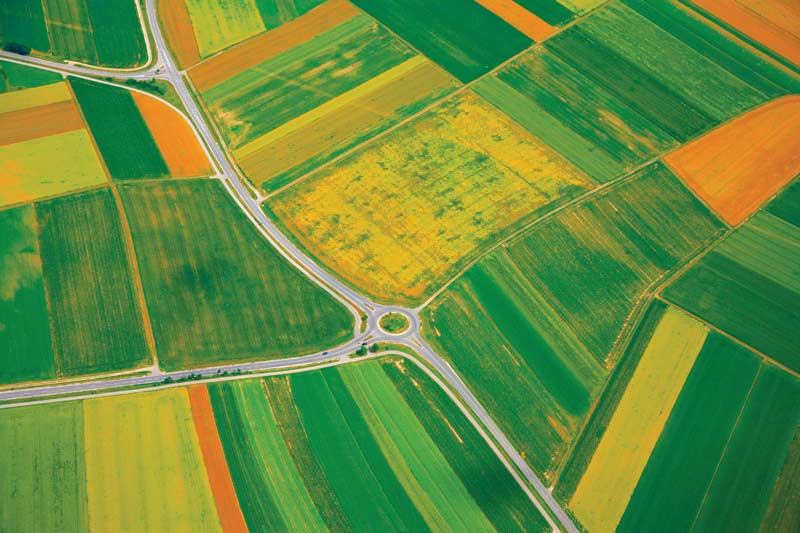Agriculture, one of the industries developing
according to China Circular Economy, has suffered the most problems compared to
any other industries, according to CCM.

It has almost been 10 years since the plan
of Circular Economy being put into the 11th five-year plan in 2006.
Circular Economy, one of the plans for
environmental protection in China, promotes giving equal importance to both
raising and saving energy. Based on the principles of reduce, reuse and
recycle, it aims at building a resource recycling system during resource
exploitation, production consumption, waste production and consumption.
However, Agriculture, being one of the most
important industries in Circular Economy, has performed the worst till now. 1/3
of over 900 million tonnes of straws was wasted and over 80 million tonnes of
waste residue had polluted the environment.
In April 2015, the Ministry of Agriculture
in China first publically admitted that Agriculture has become the industry
with the largest diffused pollution in China, surpassing Industry.
“China agricultural resources and
environment are suffering both exogenous and endogenous pollution, which may
increase safety risks of agricultural products as well as worsen the soil and
water pollution” stated by Zhang Taoling, Deputy of the Ministry of Agriculture.
The agricultural diffused pollution has become
more and more serious. Compared with the point source pollution, diffused
pollution has a wider pollution range. During the rainfall and irrigation, sand
from farmlands, nutrient salt, pesticides and other pollutants flow into water to
bring about diffused pollution.
Pollutant emissions from industrial & mineral industry and daily
life have transferred to agricultural emission, which worsens the agricultural production
environment.
Chemicals and pesticides have been overused
for a long time, meanwhile, agricultural wastes, like livestock manure and
residual plastic film, have been disposed unreasonably. Both of them also have
a great effect on the diffused pollution.
In fact, to better improve the development
of Circular Economy in agriculture, the State Council had published the Development Strategy and Recent Plan of Circular
Economy in 2013, stating that demonstrative model areas in agriculture
development should be set for Circular Economy.
However, something went wrong in the modern
agricultural demonstration areas.
“Among the modern agricultural
demonstration areas, most of them cannot be replicated, promoted and even have
no use itself for the Circular Economy”, stated by Zhang Liqun, Leader of
National Agricultural Key Science and Technology Projects.
To better solve the problems, Zhang
suggested that the government should set up different demonstrative model areas
for Circular Economy based on different regions, resource background and climate
conditions.
For example, Heilongjiang Weishan Farm has formed
a mode of using straws as fuel. It supplied heat and gas to a community with
the area of 100,000 square meters through burning over 300,000 mu of corn straws.
When other areas tried to learn from this
mode, they found a new method that they could directly burn straws to bake
corn, saving a lot of coal.
“The government should gather more
experience from local residents, as to better improve the demonstrative model
areas for people to learn from” Zhang added.
“As the China government is encouraging
Internet plus, the Ministry of Environmental Protection should also set up a
recycle system focusing on waste resource” stated Wen Xuefeng, Deputy of
Environmental Management of Solid Waste in China.
“A waste transaction online platform should
also be set up, as to bring convenience to enterprises. Thus, the Ministry of
Environmental Protection can also obtain a highly effective management, and
finally, the maximization of environmental benefits can be achieved.”
If you
would like to know more about the Agriculture industry, please visit: http://www.cnchemicals.com/Product.html?keyword=agriculture&key=Agriculture&news=&type=N
About CCM:
CCM is the leading market intelligence
provider for China’s agriculture, chemicals, food & ingredients and life
science markets. Founded in 2001, CCM offers a range of data and content
solutions, from price and trade data to industry newsletters and customized
market research reports. Our clients include Monsanto, DuPont, Shell, Bayer,
and Syngenta. CCM is a brand of Kcomber Inc.
For more information about CCM, please
visit www.cnchemicals.com or get in touch with us directly by emailing econtact@cnchemicals.com or calling
+86-20-37616606.
*The original article comes from Jiemian.com and
this article is a translated and re-edited version by CCM.